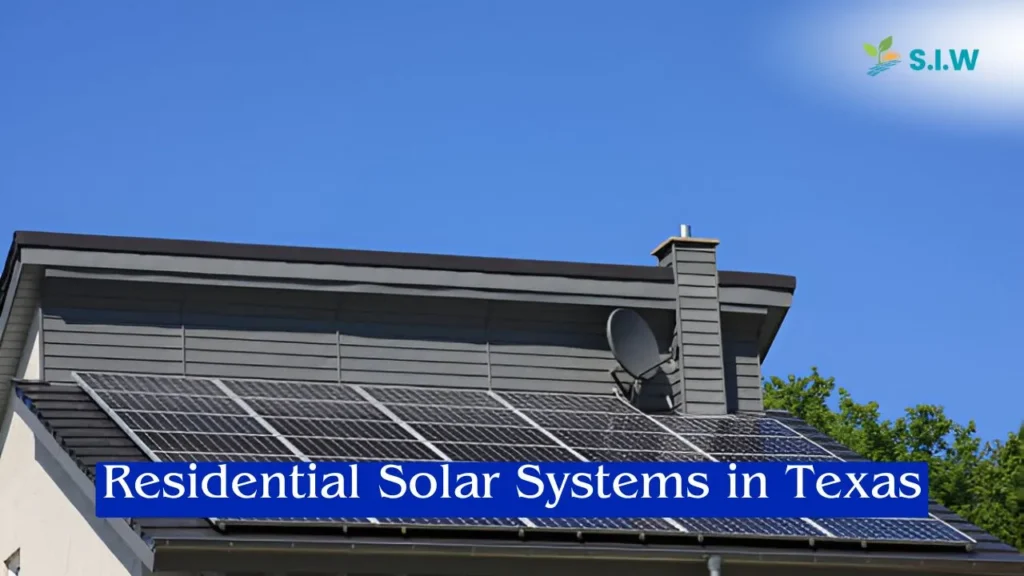As more Texas homeowners look for energy-efficient and sustainable solutions, residential solar systems have emerged as a leading option. Solar energy harnesses the power of the sun, turning it into clean, renewable electricity that powers homes across the state. Texas is uniquely suited for solar power due to its vast, sunny landscapes and a growing demand for reliable, cost-effective energy solutions.
The Importance of Solar Power in Texas
Texas is one of the largest energy consumers in the United States, and with extreme weather conditions and a rising population, the demand for power is at an all-time high. Solar power offers a reliable and environmentally-friendly alternative to traditional energy sources like natural gas and coal. By installing solar panels, homeowners in Texas not only reduce their carbon footprint but also contribute to a more sustainable energy future.
How Residential Solar Systems Work
Residential solar systems consist of solar panels, inverters, and sometimes energy storage solutions like batteries. These systems capture sunlight and convert it into usable electricity. Solar panels are typically installed on rooftops, where they absorb sunlight throughout the day. The energy is then converted from direct current (DC) to alternating current (AC) by an inverter, allowing it to power household appliances.
Benefits of Residential Solar Systems
Installing a solar system in your Texas home comes with a wide range of benefits. First and foremost, solar energy is a renewable resource, meaning you’re generating power without depleting the Earth’s natural resources. This reduces greenhouse gas emissions and air pollution. On a personal level, homeowners can see significant reductions in their monthly energy bills. Additionally, Texas offers an ideal environment for solar systems due to its abundant sunshine.
The Cost of Residential Solar Systems in Texas
While the initial investment for a solar system can seem steep, it’s important to consider long-term savings. The cost of residential solar systems in Texas varies depending on the size of the installation, equipment used, and additional features like battery storage. Typically, a residential solar system can range from $15,000 to $30,000. However, federal tax credits, state rebates, and financing options can significantly reduce these costs.
Financial Incentives for Solar in Texas
Texas offers several financial incentives to encourage homeowners to adopt solar energy. The federal solar Investment Tax Credit (ITC) allows you to deduct 30% of the cost of installing a solar system from your federal taxes. In addition, many local governments and utility companies in Texas offer rebates and performance-based incentives to make solar more affordable. When considering installation, it’s worth exploring the best solar companies in Texas to ensure you get the most reliable service and take full advantage of local incentives. Check with your local utility provider to see what incentives are available in your area.
Types of Residential Solar Systems
Homeowners can choose between several types of solar systems: grid-tied, off-grid, and hybrid systems. Grid-tied systems are the most common and allow you to stay connected to the local power grid. Off-grid systems are completely independent and require battery storage for energy storage. Hybrid systems offer a balance between the two, allowing for both grid connection and battery backup.
Choosing the Right Solar System for Your Home
When selecting a solar system, consider factors like your energy needs, roof space, and budget. If you live in an area with frequent power outages, you may want to opt for a hybrid system with energy storage. Additionally, take into account your home’s orientation and the amount of sunlight it receives throughout the year.
Installation Process for Residential Solar Systems in Texas
The installation process for a residential solar system typically takes 1 to 3 months from start to finish. This includes site assessment, system design, obtaining necessary permits, installation, and interconnection to the power grid. It’s important to work with a reputable solar installer who can handle every step of the process, ensuring a smooth and efficient installation.
FAQs
- How long does it take to install a solar system in Texas?
- Typically, the process takes 1-3 months, depending on permitting and the complexity of the system.
- How much can I save on my energy bills with solar?
- Savings vary, but Texas homeowners can reduce their bills by 50-70%.
- Do solar panels work during cloudy days?
- Yes, although solar panels generate less electricity, they still function on cloudy days.
- What is the lifespan of a residential solar system?
- Most solar systems last 25-30 years with proper maintenance.
- Can I sell excess solar energy back to the grid?
- Yes, many Texas utilities offer net metering, allowing you to sell excess energy back.
- What maintenance is required for solar systems?
- Regular cleaning and annual inspections ensure optimal performance.








